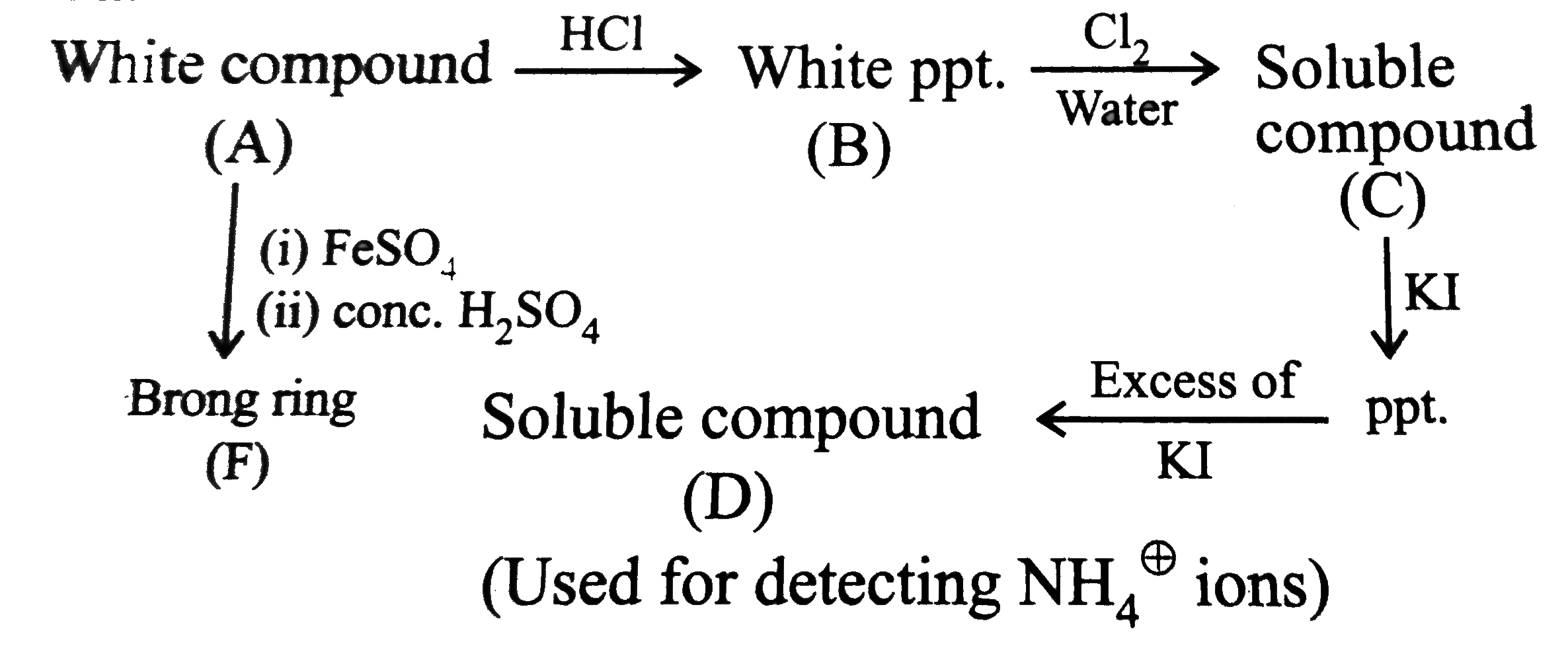An element that never has a positive oxidation state in any of its compounds is
Boron
Oxygen
Chlorine
Fluorine
The correct Answer is:D
To determine which element never has a positive oxidation state in any of its compounds, we can analyze the oxidation states of the given elements: boron, oxygen, chlorine, and fluorine.
1. Understanding Oxidation States:
- Oxidation state refers to the degree of oxidation of an atom in a compound. It can be positive, negative, or zero.
- Elements can exhibit different oxidation states depending on the compounds they form.
2. Analyzing Boron:
- Boron can have oxidation states of +3 (in boron trifluoride, BF3) and -3 (in borides).
- Therefore, boron can show positive oxidation states.
3. Analyzing Oxygen:
- Oxygen typically has an oxidation state of -2 in most compounds (like water, H2O).
- However, it can also exhibit positive oxidation states, such as +1 (in peroxides) and +2 (in compounds with fluorine).
- Thus, oxygen can show positive oxidation states.
4. Analyzing Chlorine:
- Chlorine can have oxidation states ranging from -1 (in chlorides) to +7 (in compounds like ClO4-).
- Hence, chlorine can also exhibit positive oxidation states.
5. Analyzing Fluorine:
- Fluorine is unique among the halogens. It always has an oxidation state of -1 in its compounds (like HF).
- Fluorine does not exhibit any positive oxidation states in any of its compounds.
6. Conclusion:
- Among the elements analyzed, fluorine is the only element that never has a positive oxidation state in any of its compounds.
Final Answer:
The element that never has a positive oxidation state in any of its compounds is Fluorine.
- Oxidation state refers to the degree of oxidation of an atom in a compound. It can be positive, negative, or zero.
- Elements can exhibit different oxidation states depending on the compounds they form.
- Boron can have oxidation states of +3 (in boron trifluoride, BF3) and -3 (in borides).
- Therefore, boron can show positive oxidation states.
- Oxygen typically has an oxidation state of -2 in most compounds (like water, H2O).
- However, it can also exhibit positive oxidation states, such as +1 (in peroxides) and +2 (in compounds with fluorine).
- Thus, oxygen can show positive oxidation states.
- Chlorine can have oxidation states ranging from -1 (in chlorides) to +7 (in compounds like ClO4-).
- Hence, chlorine can also exhibit positive oxidation states.
- Fluorine is unique among the halogens. It always has an oxidation state of -1 in its compounds (like HF).
- Fluorine does not exhibit any positive oxidation states in any of its compounds.
- Among the elements analyzed, fluorine is the only element that never has a positive oxidation state in any of its compounds.
The element that never has a positive oxidation state in any of its compounds is Fluorine.
Topper's Solved these Questions
- BOOK - CENGAGE CHEMISTRY ENGLISHCHAPTER - REDOX REACTIONSEXERCISE - Exercises (Assertion-Reasoning)15videos
REDOX REACTIONS
- BOOK - CENGAGE CHEMISTRY ENGLISHCHAPTER - REDOX REACTIONSEXERCISE - Exercises (Integers)11videos
REDOX REACTIONS
- BOOK - CENGAGE CHEMISTRY ENGLISHCHAPTER - REDOX REACTIONSEXERCISE - Exercises (Multiple Correct)32videos
REDOX REACTIONS
- BOOK - CENGAGE CHEMISTRY ENGLISHCHAPTER - PURIFICATION OF ORGANIC COMPOUNDS AND QUALITATIVE AND QUANTITATIVE ANALYSISEXERCISE - Assertion Reasoning Type5videos
PURIFICATION OF ORGANIC COMPOUNDS AND QUALITATIVE AND QUANTITATIVE ANALYSIS
- BOOK - CENGAGE CHEMISTRY ENGLISHCHAPTER - S-BLOCK GROUP 1 - ALKALI METALSEXERCISE - Archives Subjective8videos
S-BLOCK GROUP 1 - ALKALI METALS
Similar Questions
Knowledge Check
- Question 1 - Select One
Oxygen exhibits positive oxidation state in
ACOBF2OCNODN2O
The element that exhibits negative oxidation state in IIIA group is
View SolutionThe highest possible oxidation state shown by osmium in its compound is
View SolutionWhich of the following elements shows maximum number of different oxidation states in its compounds ?
(a)Eu
(b)La
(c)Gd
(d)AmView SolutionOxygen has −1 oxidation state in the compound.
View SolutionOxygen has −2 oxidation state in the compound
View SolutionMark the element which shows only one oxidation state in its compounds
View SolutionIn general, the Transition elements exhibit their highest oxidation states in their compounds with elements like:
View Solution

